Challanges faced by Indian MSMEs

Digital Transformation in the Modern Business Landscape
In today's rapidly evolving business landscape, organizations must adapt to new technologies and methodologies to remain competitive. Digital transformation is revolutionizing how businesses operate, enhancing operational efficiency, improving customer experiences, and driving innovation across all sectors.
Digital transformation involves more than just implementing new technologies; it requires a fundamental shift in organizational culture and mindset. Companies must be willing to embrace change, experiment with new approaches, and continuously learn and adapt to stay relevant in an increasingly digital world.

MSMEs face unique challenges in digital transformation
The Impact on MSMEs and Economic Growth
For Micro, Small, and Medium Enterprises (MSMEs), digital transformation presents both significant opportunities and challenges. As the backbone of many economies, including India's, MSMEs must embrace digital technologies to remain competitive in the global marketplace.
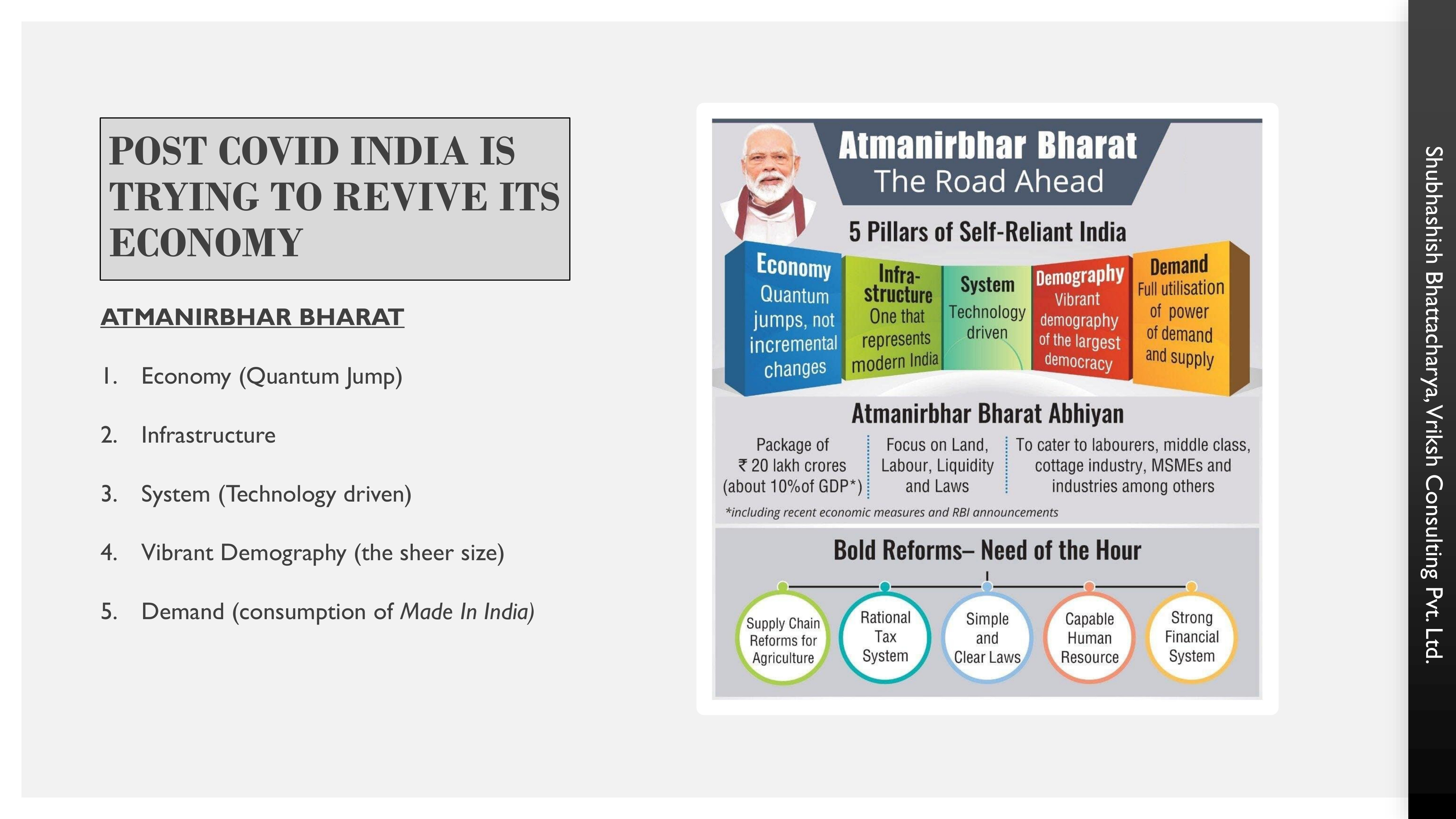
MSME sector is the backbone of Indian Economic Structure
With approximately 63.4 million MSME units spread throughout India, employing around 120 million people, the sector contributes significantly to the country's GDP. MSMEs contribute 6.11% of the manufacturing GDP, 24.63% of the GDP from service activities, and 45% of overall exports from India.
Key Measures of Economic Strength and Digital Transformation
Digital transformation strategies must be aligned with broader economic goals. Understanding the key measures of a strong economy helps businesses contextualize their digital initiatives.
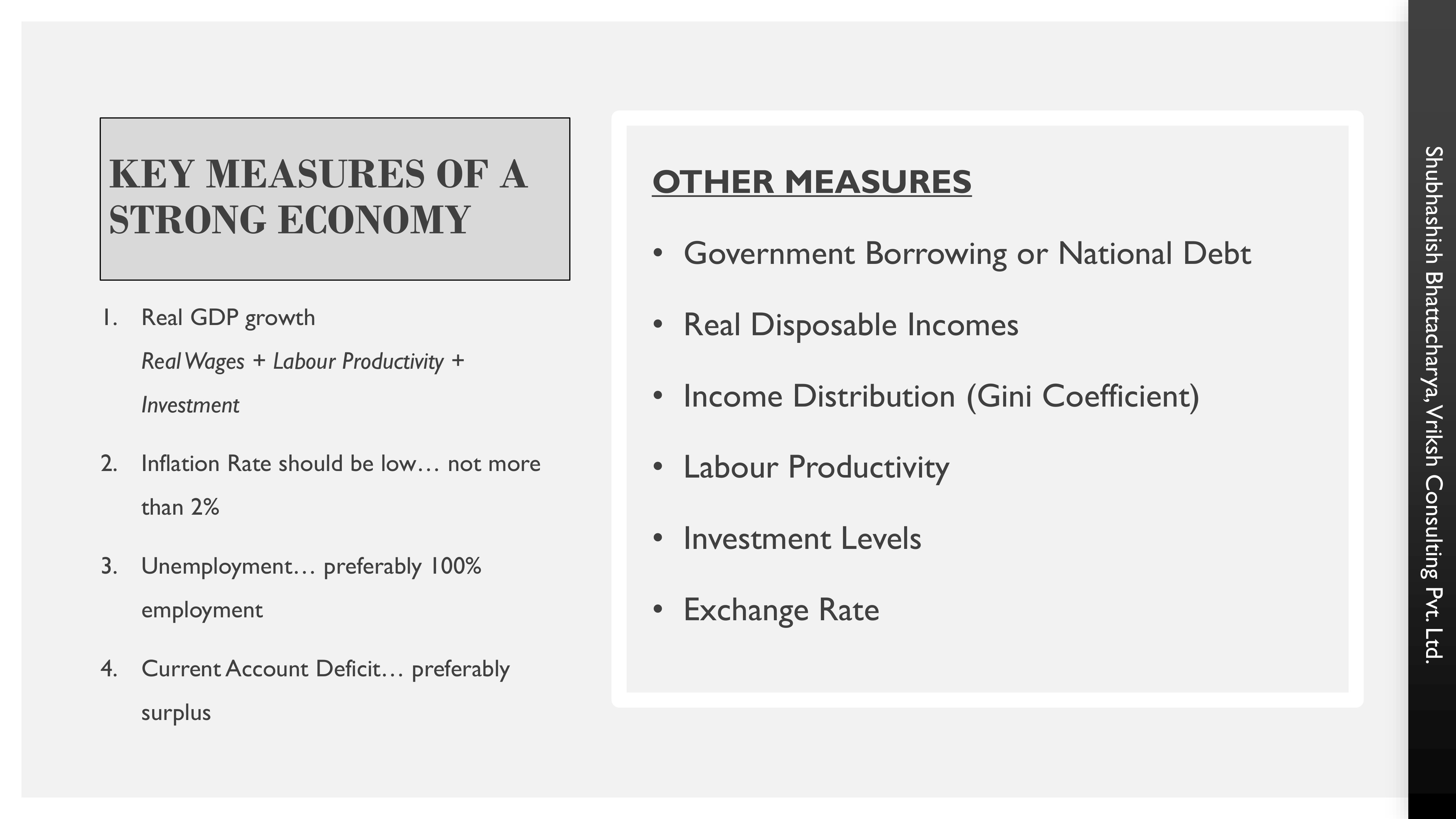
Key economic indicators that digital transformation can impact
Digital transformation can positively impact these economic indicators by increasing productivity, creating new job opportunities, and enabling businesses to compete more effectively in global markets.
Sectoral Focus for Digital Transformation
Different sectors require tailored digital transformation strategies. In India, the focus on manufacturing as part of the Atmanirbhar Bharat (Self-Reliant India) initiative presents unique opportunities for digital innovation.
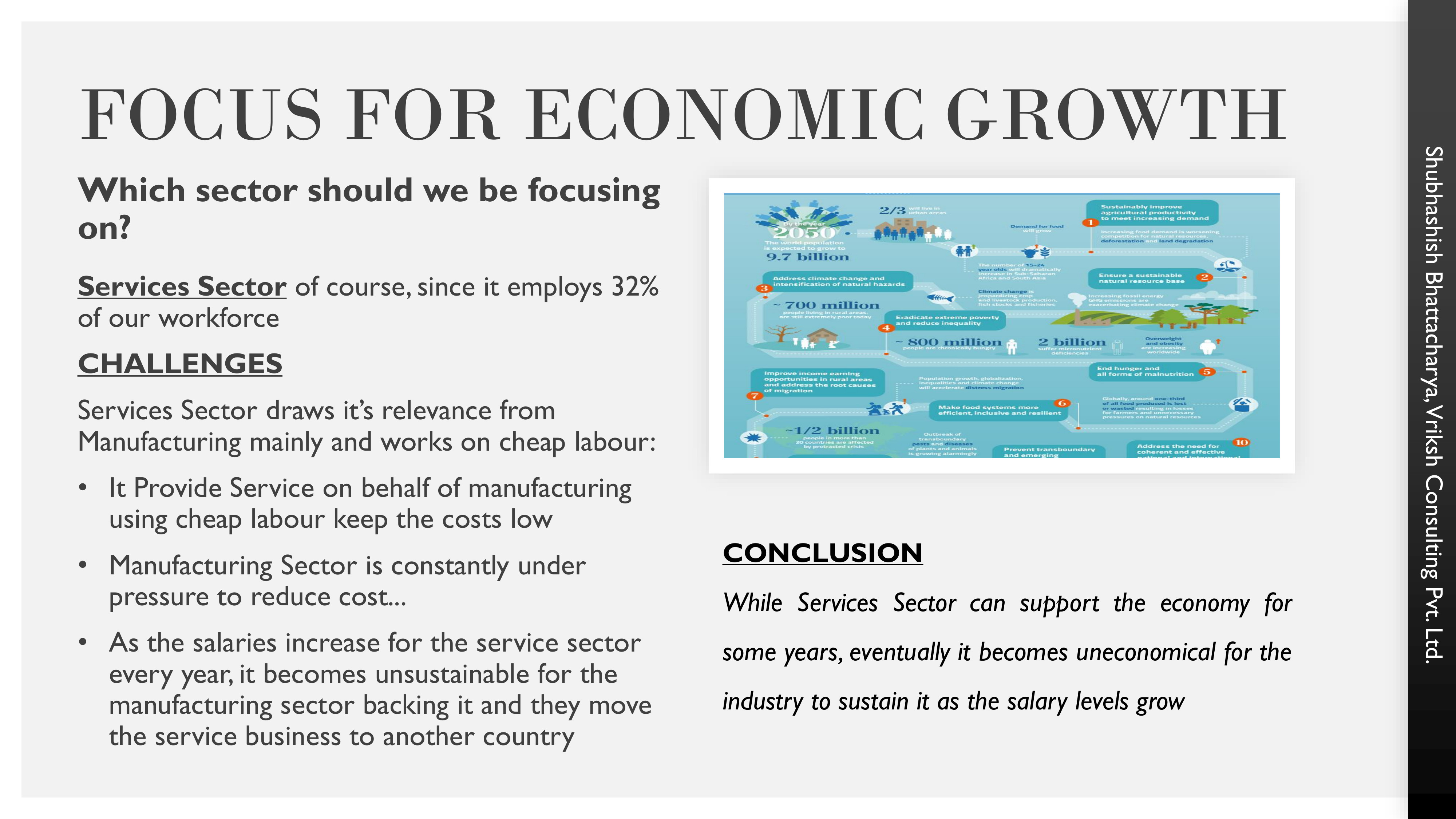
Manufacturing sector requires specific digital transformation approaches
For the manufacturing sector to thrive through digital transformation, businesses need to focus on creating a robust ecosystem that includes ease of doing business, skilled labor, infrastructure, and strong vendor networks.
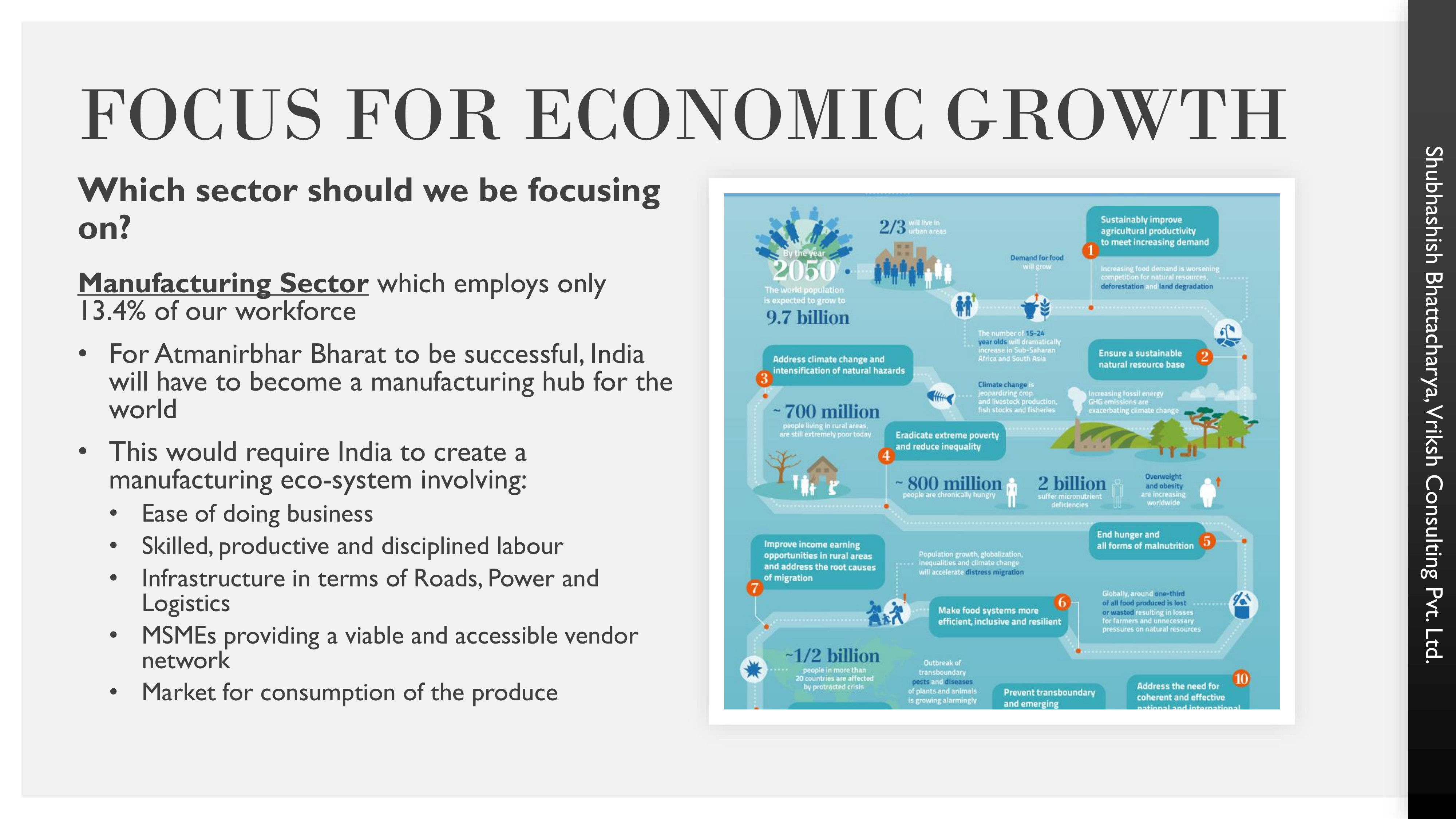
Services sector digital transformation challenges
The services sector, which employs 32% of India's workforce, faces different challenges in digital transformation. As salaries increase, businesses must leverage technology to maintain competitiveness rather than relying solely on cost advantages.
Post-COVID Digital Transformation Imperatives
The COVID-19 pandemic accelerated digital transformation across all sectors. In the post-pandemic world, businesses must continue to innovate and adapt to new realities.
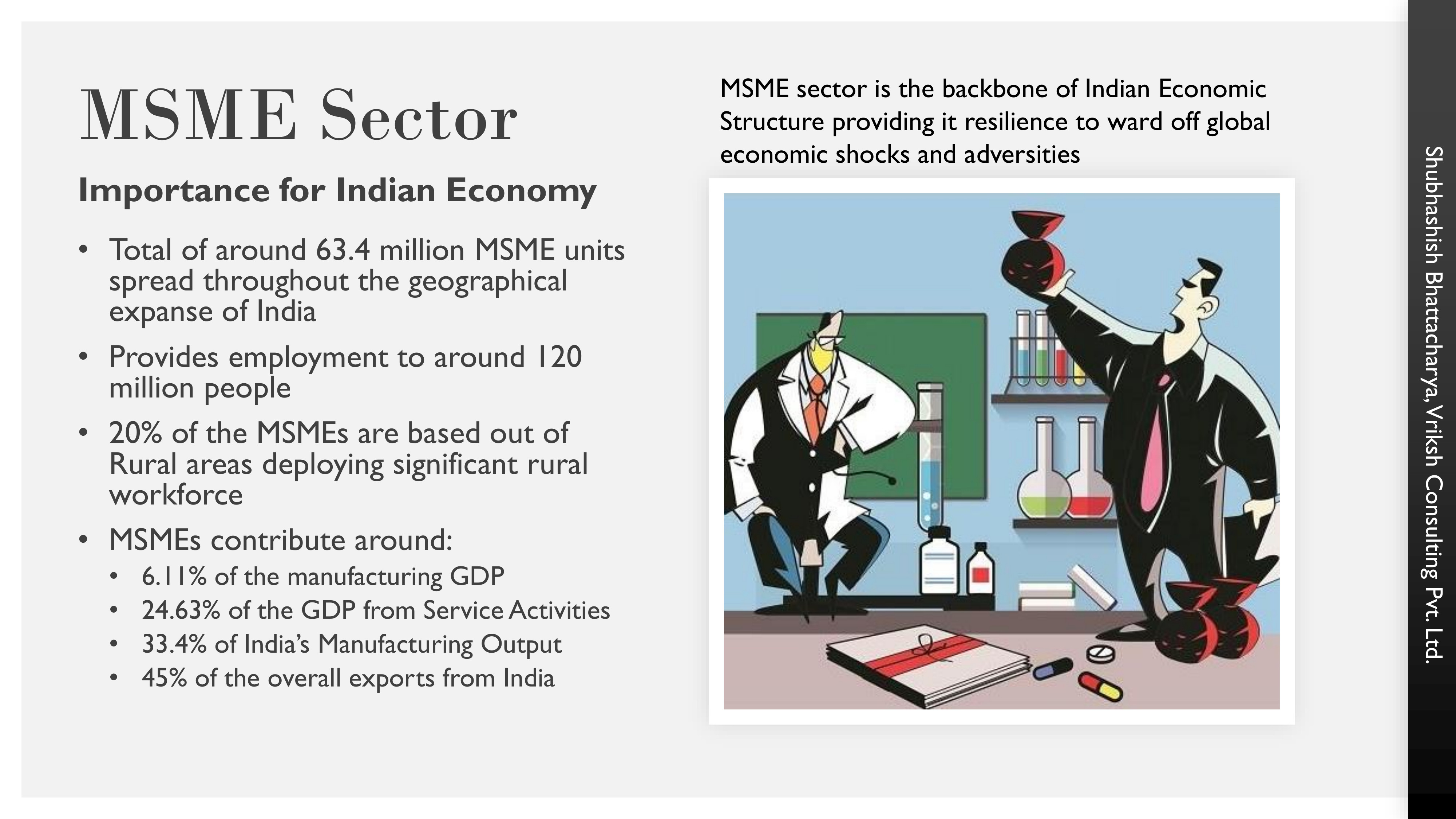
Atmanirbhar Bharat's five pillars for post-COVID economic revival
The five pillars of Atmanirbhar Bharat—Economy, Infrastructure, System, Vibrant Demography, and Demand—provide a framework for businesses to align their digital transformation strategies with national economic goals.
MSMEs and Digital Transformation: The Path Forward
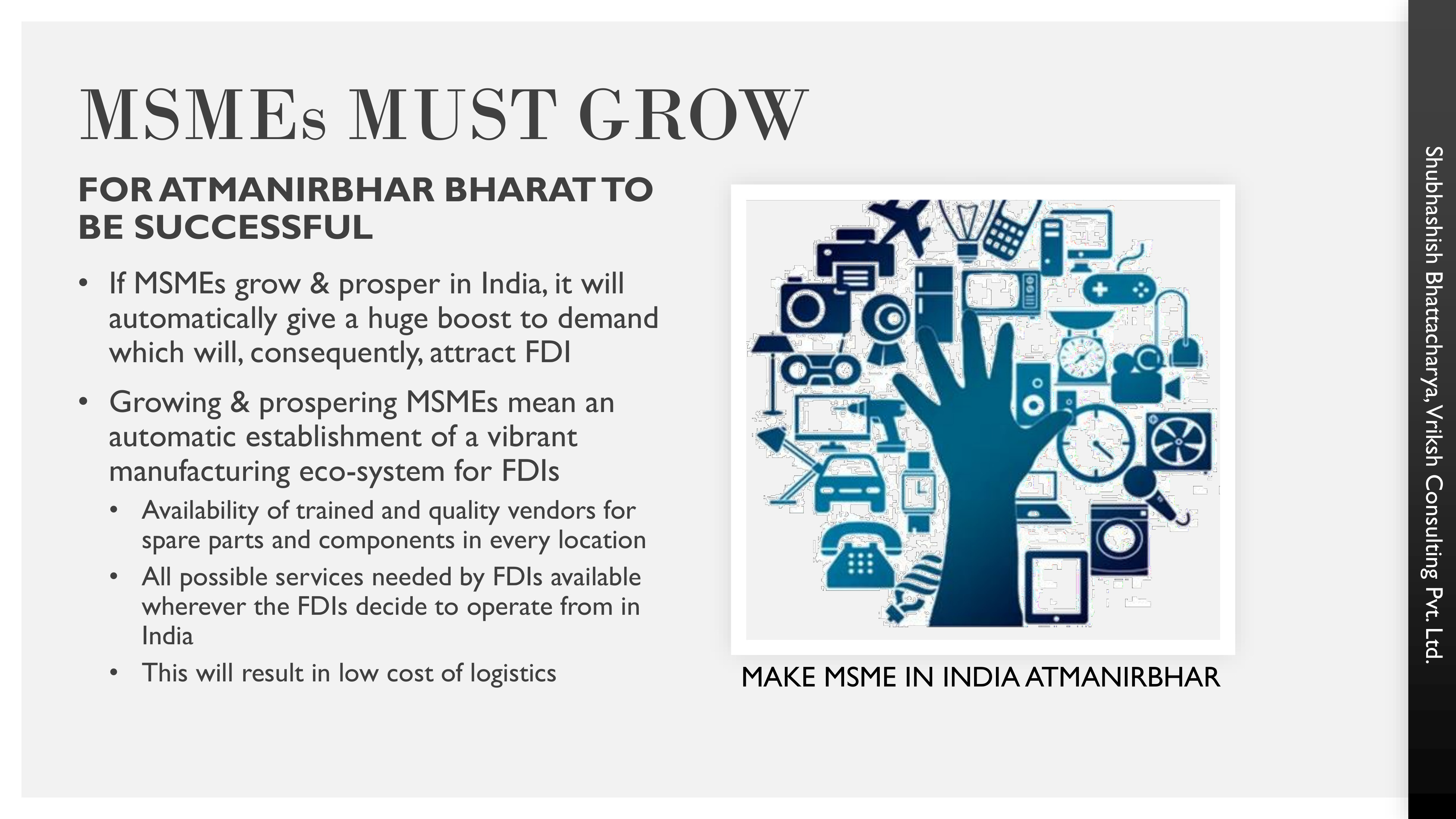
MSMEs growth is essential for economic self-reliance
For MSMEs to thrive in the digital age, they must focus on:
- Adopting cloud-based solutions to reduce infrastructure costs
- Implementing data analytics to gain customer insights
- Leveraging e-commerce platforms to reach wider markets
- Utilizing digital marketing to build brand presence
- Automating routine processes to improve efficiency
Key Considerations for Successful Digital Transformation
Regardless of sector or size, businesses should consider these key factors when implementing digital transformation strategies:
- Develop a clear digital transformation strategy aligned with business goals
- Foster a culture of innovation and continuous learning
- Invest in the right technologies and tools
- Build cross-functional teams to drive transformation initiatives
- Measure and track progress using relevant KPIs
- Ensure cybersecurity and data privacy compliance
- Focus on customer experience throughout the transformation journey
Conclusion
Digital transformation is not a one-time project but an ongoing journey. Organizations that embrace this mindset and commit to continuous improvement will be better positioned to thrive in today's dynamic business environment. By focusing on people, processes, and technology, businesses can drive meaningful change and create sustainable competitive advantages.
For Indian businesses, particularly MSMEs, digital transformation aligned with national economic goals can contribute significantly to the vision of a self-reliant, economically robust India. The path may be challenging, but the rewards—increased efficiency, expanded market reach, and enhanced competitiveness—make it a journey worth undertaking.
Related Articles
Subscribe to Our Newsletter
Stay updated with our latest insights and industry trends.
Article Navigation
Need Expert Digital Transformation Consulting?
Our team of experienced consultants can help your business navigate the digital landscape and implement effective transformation strategies.